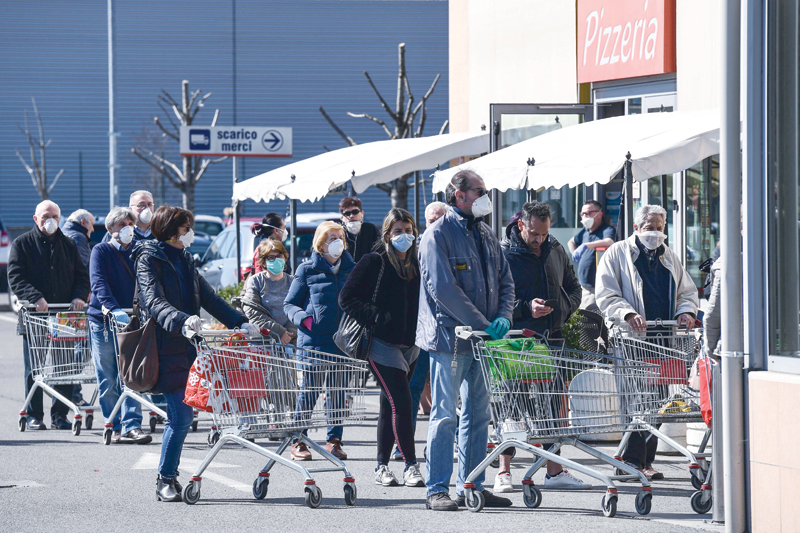

LONDON: Panic-buying due to the coronavirus has led to fewer donations to UK food banks, and some must even ration essential goods to needy people, experts said on Wednesday.
Sabine Goodwin, coordinator of the Independent Food Aid Network, which represents some 200 British food banks, said there was “anecdotal” evidence that public concern over the coronavirus was beginning to hit food supplies for the most vulnerable.

“I have seen some reports of donations (to food banks) being reduced,” Goodwin said, adding: “We are seeing a reduction in donations and some of the food banks are rationing.”
Some reports suggested donations had reduced by up to a quarter in recent days in parts of London and eastern Scotland.
In addition, essentials such as long-life milk had run out as people stockpiled goods.
At the same time, the chief executive of the Trussell Trust, which has a national network of 1,200 food banks, said it faced an “unprecedented challenge” due to the virus.
“With the spread of coronavirus we all now face an unprecedented challenge and uncertain future,” said Emma Revie in a statement.
“It is possible that food banks will face increased demand as people lose income, at the same time as food donations drop or staff and volunteers are unavailable, due to measures rightly put in place to slow the spread of infection.”
In recent days goods such as toilet paper, soap and tinned food have been stripped from British shop shelves amid panic over the spread of the virus.
The situation became so bad that Prime Minister Boris Johnson was earlier this week forced to urge shoppers to “behave responsibly”.
Other European nations on Wednesday shut schools and universities and slapped more restrictions on travel, sport and cultural events over the surging coronavirus outbreak, as more countries announced deaths from the epidemic.
Italy remains at the centre of Europe’s outbreak as another jump in cases on Tuesday took the total to more than 10,000 infections and deaths rose by a third to 631.
Millions of Italians woke to deserted streets and shuttered shops after officials imposed a national lockdown, while the government has pledged 25 billion euros ($28 billion) to fight the virus.
Countries including Poland and Ukraine announced school closures despite no significant outbreaks being reported.
Austria, which has already reintroduced border controls with Italy, said it was shutting museums and halting train services to its southern neighbour.
China, still the worst-affected country with more than 80,000 cases and over 3,000 deaths, offered hope to the rest of the world by again announcing negligible new daily infections and only a relatively small number of deaths.
Some businesses in China’s central Hubei province — where the virus was first detected in December — were told they could resume operations, reducing fears of a prolonged disruption of supply chains.
Belgium and Panama are the most recent countries to announce their first confirmed deaths from the virus, while Spain announced that the number of cases has topped 2,000 with 47 deaths. — AFP
Oman Observer is now on the WhatsApp channel. Click here



